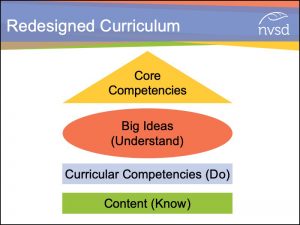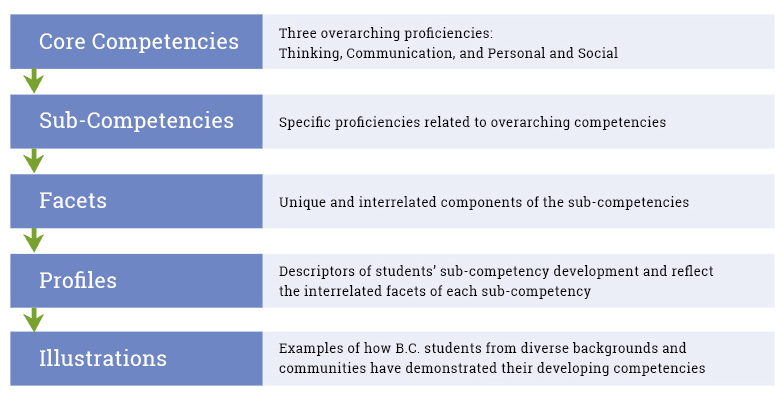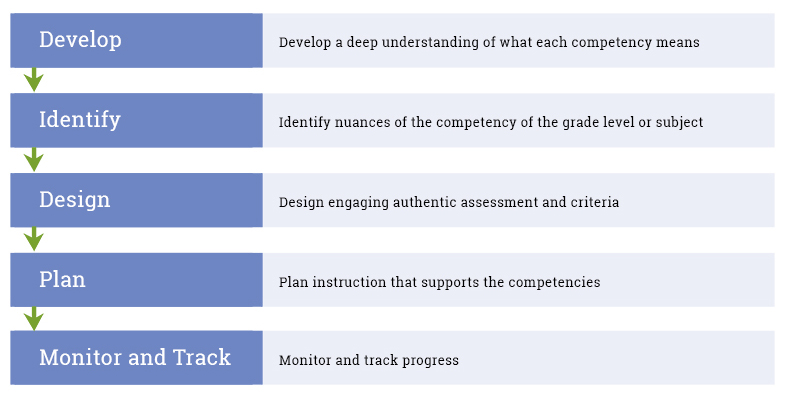
Core Competencies
Introduction to Core Competencies
 The Core Competencies are sets of intellectual, personal, and social and emotional proficiencies that all students need in order to engage in deep, lifelong learning. Along with literacy and numeracy foundations, they are central to British Columbia’s K-12 curriculum and assessment system and directly support students in their growth as educated citizens.
The Core Competencies are sets of intellectual, personal, and social and emotional proficiencies that all students need in order to engage in deep, lifelong learning. Along with literacy and numeracy foundations, they are central to British Columbia’s K-12 curriculum and assessment system and directly support students in their growth as educated citizens.
Students develop Core Competencies when they are engaged in the “doing” – the Curricular Competencies – within a learning area. As such, they are an integral part of the curriculum. While they manifest themselves uniquely in each area of learning, the Core Competencies are often interconnected and are foundational to all learning.
Before students enter school, development of Core Competencies begins at home and then continues throughout their life. Students encounter opportunities to develop their competence in formal and informal settings. They move from demonstrating competence in relatively simple and highly supported situations, to demonstrating independence in more complex and varied contexts. Competency development does not end with school graduation but continues in personal, social, educational, and workplace contexts.
Students, teachers, and parents/guardians share responsibility for the ongoing development of Core Competencies.
The NVSD supports and promotes the integration the core competencies with the curricular competencies as a foundational learning tool. The meta- cognitive process of self assessment of the core competencies directly aligns with life long learning skills that are crucial in the 21st century.
Structure of Core Competencies

Steps to grow the Competencies in the classroom (Schimmer)

Supporting Documents
